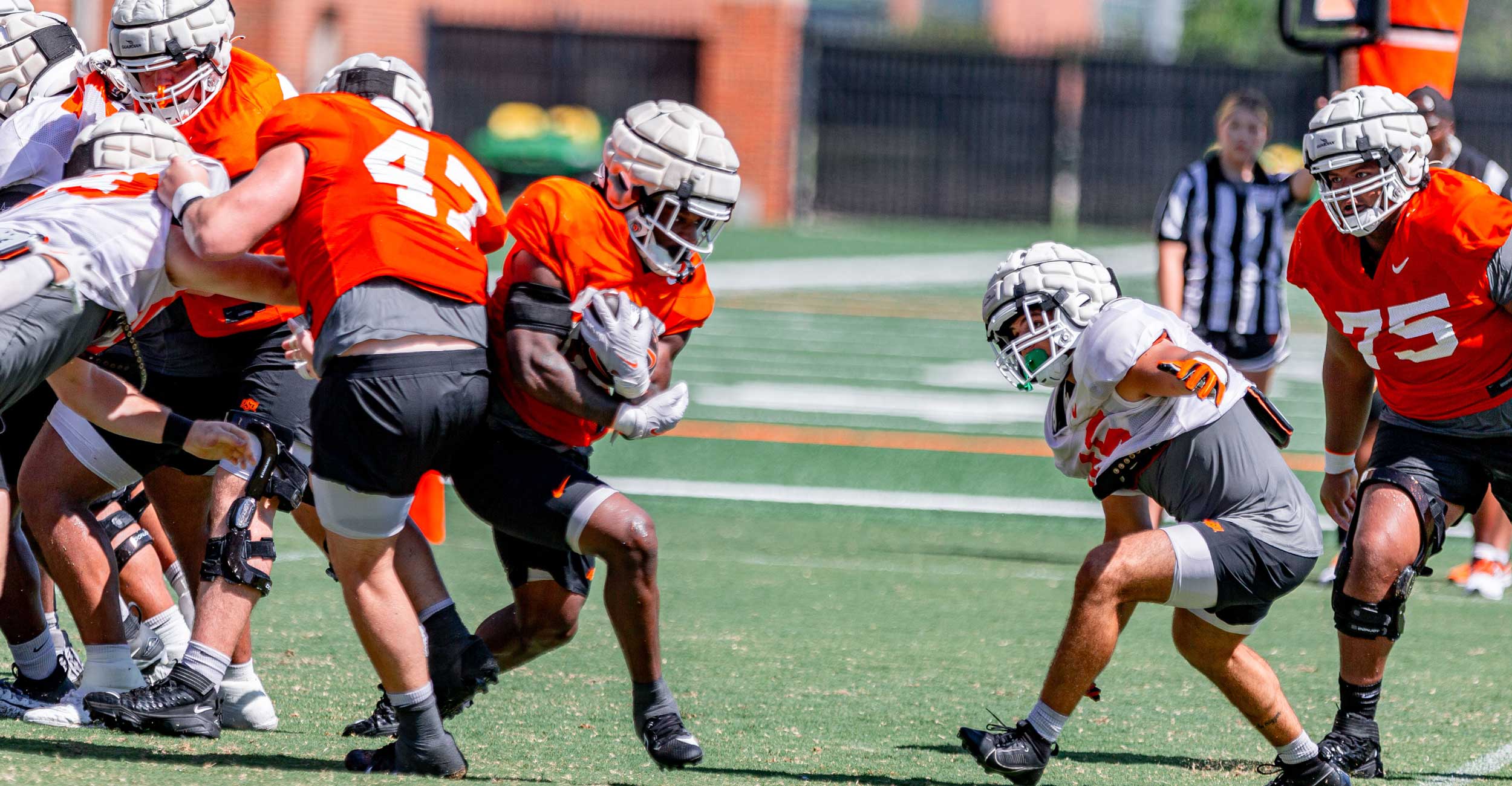
Athletic training ECHO to prevent heat-related athlete collapses and enhance safety measures
Thursday, August 29, 2024
Media Contact: Sydney Trainor | Communications and Media Relations Specialist | 405-744-9782 | sydney.trainor@okstate.edu
As the school year starts, so do sports activities at all levels, from elementary school to college. With increased activity and severe temperatures, the risk of athletes collapsing rises.
When Oklahoma State University Athletics team physician Dr. Jason Moore discusses heat exposure in triple-digit temperatures, he often encounters a common misconception. The first question he hears is whether hydration affects the risk.
“You can be hydrated, or you can be dehydrated, you still have a risk depending upon what the relative humidity, the temperature, the direct sunlight exposure is,” Moore said. “I think you need to hydrate when exposed to high temperatures, there is evidence showing electrolyte abnormalities in hydration may have an impact on the body leading to heat cramps, but you're just as at risk of heat stroke regardless of hydration status.”
Moore led the August Athletic Training-Sports Medicine Project ECHO — a collaboration between the Human Performance and Nutrition Research Institute and OSU Center for Health Sciences. He provided critical resources to help medical and school professionals prepare to respond appropriately when an athlete collapses from suspected arrhythmia, heat exposure or head injury.
Project ECHO is a guided-practice model that reduces health disparities in underserved and remote areas of the state. Expert teams share their knowledge via virtual clinics to help local providers deliver best-in-practice care to rural communities.
“There are really three different types of heat illness that we're worried about, heat cramps, heat exhaustion and heat stroke,” Moore said.
Heat cramps are likely caused by electrolyte imbalances. Athletes should hydrate more both at home and during practice, while also supplementing with electrolytes as needed.
Heat exhaustion can cause nausea, vomiting, fatigue, headaches and an increased internal temperature. Affected athletes should be moved to a cool environment immediately, rest for 48-72 hours, and gradually return to heat for acclimatization.
Heat strokes have similar symptoms but include neurological signs, putting athletes at high risk of seizures. Personnel should call 911 immediately and initiate cooling procedures according to the emergency action plan.
Heat exposure can be mitigated through acclimatization, frequent breaks and practicing when the risk is lower.
When it comes to head injuries during games or training, Moore said any loss of consciousness, confusion, headache, dizziness or any other neurologic symptoms should be treated like a concussion and evaluated urgently by a certified athletic trainer or physician.
Sudden cardiac collapse is another concern we should all be prepared to deal with on the field of play.
When NFL player Damar Hamlin collapsed during the Jan. 2, 2023, Monday Night Football game, he experienced a traumatic cardiac arrest.
Hamlin had no known congenital conditions like hypertrophic cardiomyopathy or arrhythmias that would increase his risk.
Although we cannot predict this type of cardiac arrest, a simple EKG can detect irregular rhythms, and abnormal electrical patterns of the heart allowing a preventative approach and a well-prepared emergency action plan can ensure personnel are ready for such events.
“One issue with an EKG is, you're not going to catch every arrhythmia out there, but just discovering one may save a life and by getting them to a cardiologist or electrophysiologist before the season even starts allows you to make a more informed decision about fitness to play,” Moore said.
An emergency action plan is crucial for these types of circumstances, and can save an athlete's life by ensuring equipment, like an automated external defibrillator is available at all games and practices, as well as having at least one CPR-certified person on the sidelines and having a plan for medical transportation.
The Athletic Training-Sports Medicine ECHO line funded by the Tobacco Settlement Endowment Trust is held from noon to 1 p.m. on the second and fourth Wednesday of each month and presents expert knowledge of best practices in the identification, reduction, and treatment of sports-related injuries to keep student athletes active, healthy, and expedite return to play.
Register for upcoming Athletic Training-Sports Medicine ECHO sessions.
